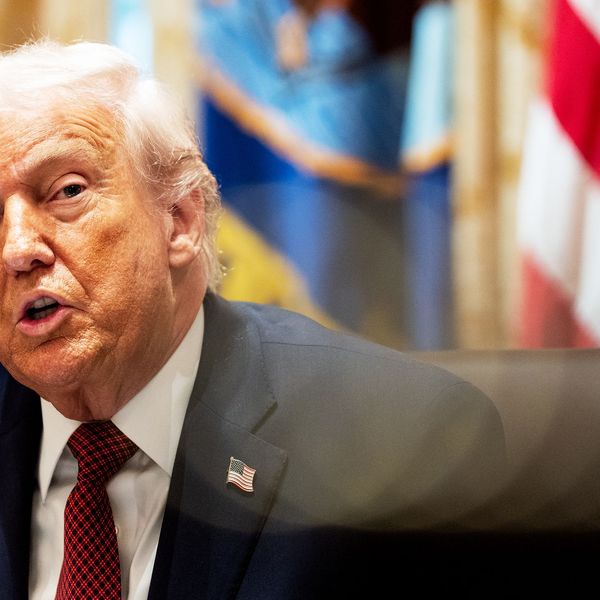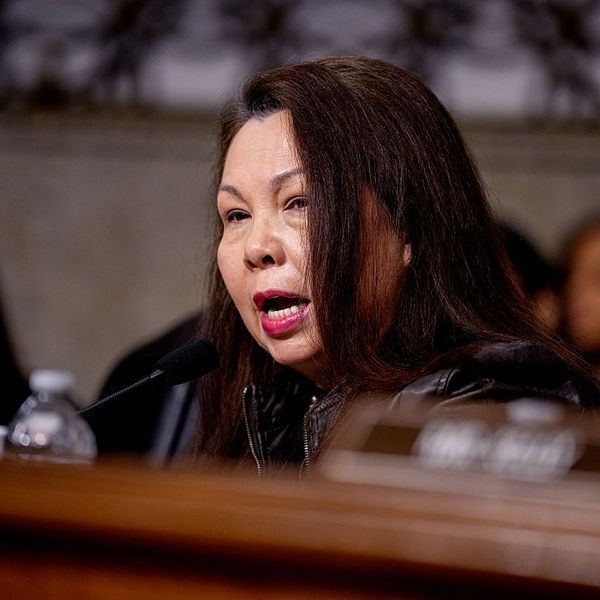The Tuesday Night Massacre doesn't have quite the right ring, but then the sequel is almost never as satisfying as the original.
Nearly 44 years ago, Richard Nixon touched off what many of us had hoped would be the worst constitutional crisis of our lifetimes when he fired not only the special prosecutor investigating his Watergate scandal but also the attorney general and his No. 2, in the notorious Saturday Night Massacre. But that 1973 misadventure had what most Americans considered a happy ending. The investigative pressure on Nixon only increased, and he resigned 10 months later. The system worked, everybody said.
On May 9, 2017, President Trump shocked the nation by firing FBI director James Comey -- just weeks after Comey confirmed that his agents have been conducting a lengthy ongoing criminal investigation into whether Trump's 2016 campaign colluded with Russia in hacking emails that damaged his election rival, Hillary Clinton.
There is absolutely no guarantee that the ending of this sequel will be as upbeat as things turned out in the days after October 20, 1973. Our politics are more narrow, partisan and divisive, our media is more muddled, and our voters already proved last November that not all Americans are terrified by the prospect of authoritarian-style government in Washington.
And so the way we respond to Trump's Tuesday Night massacre will decide whether "the system works" again, or whether this country slowly slides into the realm of the world's all-too-many unstable banana republics.
"This is Nixonian," Pennsylvania Democratic Sen. Bob Casey said in a statement just minutes after Comey's firing. He echoed calls by scores of Democrats for the immediate appointment of a special prosecutor who would conduct the same kind of independent investigation that allowed Leon Jaworski -- who replaced the fired Archibald Cox in the intense backlash against Nixon -- to eventually get to the bottom of Watergate.
This is all happening, by the way, in just the 110th day of a presidency of a blustery billionaire with no political experience, an aircraft carrier full of grievances, an itchy Twitter finger and little if any commitment to America's longstanding democratic norms. To all too many citizens, the worst fears about a Trump presidency came true at 5:47 p.m.
"Can we point out here that the emperor isn't wearing any clothes," CNN legal analyst Jeffrey Toobin said in those stunned initial moments, joining most pundits in questioning the stated reasons for Comey's dismissal and speculating that the president's real motive was to ultimately squelch the Trump-Russia probe under his own hand-picked FBI chief. "Are people going to suspect cover-up?" asked Senate Minority Leader Chuck Schumer of New York at a news conference. "Absolutely."
Now, the real pressure will be on the Republicans who control both houses of Congress and who, until now, have tended to rally behind their party's new president despite a steady flow of negative headlines about the dealings between Trump aides like fired national security adviser Mike Flynn and representatives of Vladimir Putin's Russia.
The initial response Tuesday night was not encouraging. In fact, South Carolina Sen. Lindsey Graham, one of the few GOPers who criticizes Trump on occasion, supported the Comey firing on Twitter. "I believe a fresh start will serve the FBI and the nation well," he wrote.
No doubt, the recent history of Comey -- the seeming straight-arrow attorney who had run the nation's top law-enforcement agency since his 2013 appointment by Barack Obama -- will muddy the waters. His unorthodox handling in 2016 of simultaneous probes of Clinton's private email server -- in which Comey released information in a way that some experts and many Democrats believe cost her the election -- and of Trump's campaign, which wasn't disclosed before the election, managed to alienate some folks on both sides of the aisle.
Indeed, it's was Comey's decision to criticize Clinton's email practices at a news conference last summer that Trump's men -- spelled out in a memo by deputy attorney general Rod Rosenstein -- cited on Tuesday as the reason for his dismissal. And Comey may have accidentally thrown fuel on that fire Tuesday by admitting that last week he'd given wrong information about an important aspect of the Clinton probe at a Senate hearing.
But few were buying that sudden concern for Clinton's plight was the reason for Comey's firing. After all, Trump had praised the FBI director's role last year. But in recent days, the president has also betrayed a high level of anxiety about the Russia investigation -- trash-talking former acting attorney general Sally Yates on Twitter before she testified about ex-Trump aide Flynn in the Senate on Monday, and then claiming in Tuesday's firing letter that Comey had told Trump "on three separate occasions" he's not being personally investigated on the Russia matter.
What's more, three investigative officials in a position to probe the Trump campaign -- Yates, the Manhattan U.S. Attorney Preet Bharara, and now Comey -- have all been abruptly fired by the president. That's deeply troubling, as was the involvement in Comey's dismissal of Attorney General Jeff Sessions -- who recused himself from the Trump-Russia probe because of his own dealings with the Russian ambassador, dealings that he lied about in his confirmation hearings.
Still, in 1973 and 1974, it took the decision to name a fresh Watergate independent prosecutor, fiercely independent members of Nixon's own party like Senators Howard Baker and Lowell Weicker, and an independent judiciary that voted unanimously for the president to release his Oval Office tapes before America found out what that president knew and when he knew it. As of right now, none of these things are teed up in Donald Trump's America. And that should worry all of us.
The way that Trump's Watergate sequel starts -- a nation's leader firing the prosecutor who was investigating him -- happens in tinhorn dictatorships all over the world. Whether America remains a functioning democracy depends on how we end this storyline.


